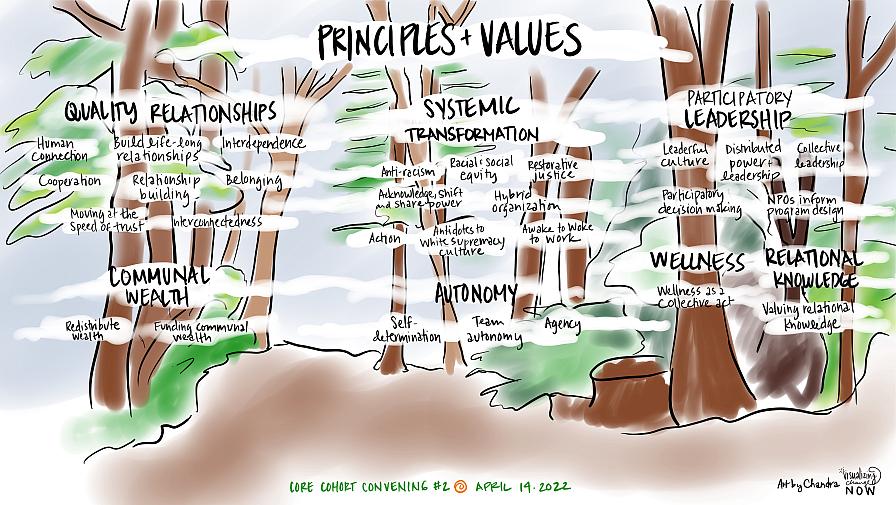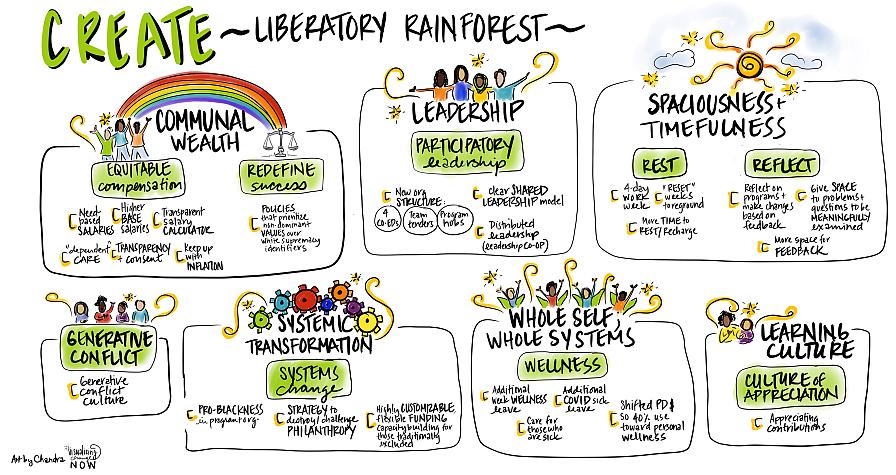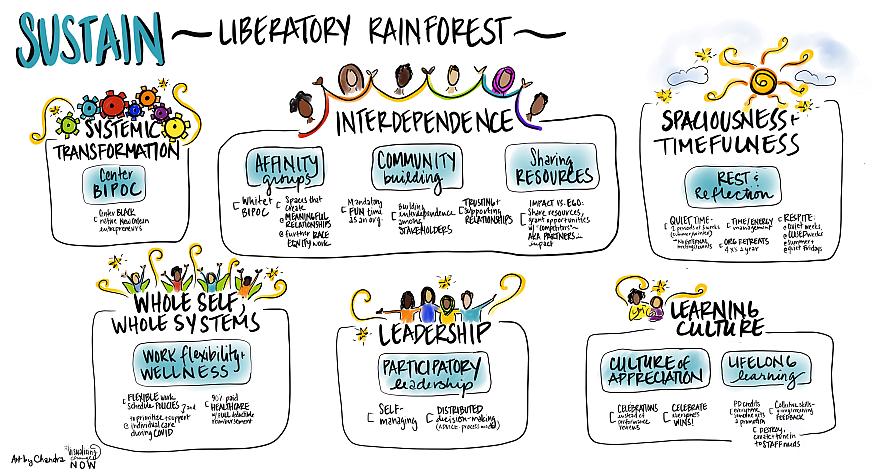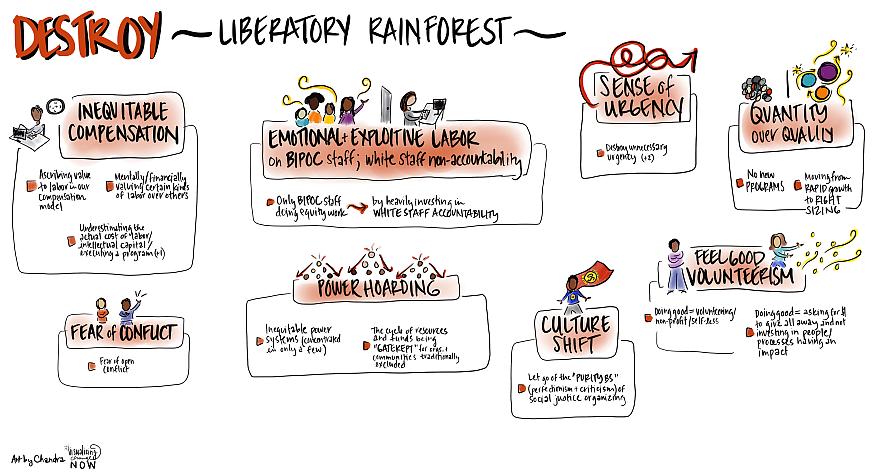

As part of Social Innovation Forum’s (SIF) Community Organizations Reimagining Ecosystem’s (CORE) national cohort, sixteen leaders from eight organizations across the nation convened this spring to ponder on the role of liberatory culture in place-based work and social change.
Roshni Sampath (Rooted in Vibrant Communities, WA), Michelle Dominguez (Social Justice Partners Los Angeles, CA), and Chelsea Hartness (Mission Capital, TX) used Daniel Lim’s framework, Qualities of Regenerative and Liberatory Culture, to facilitate a discussion on work culture practices the cohort wish to create, sustain, and destroy. Here are three takeaways the facilitators are exploring to promote a liberatory culture in organizations.
The cohort grounded the discussion in their principles and values, captured by Chandra Larson in this graphic recording
1. We Need Space to Cultivate Wholeness and Wellness

As purpose driven organizations that support our communities to thrive, we need to engage in collective care. We can do this by implementing policies and practices to cultivate wholeness, reflection, integration, and the 7 types of rest.
We discussed an array of creative, effective wellness practices:
- Sick leave policies to care for staff and their loved ones
- Health care with reimbursable deductibles to employees
- Work hour flexibility to account for energy management
- Professional development funds that support self-care
- 4-day work weeks
- Quiet time designated to create space for deep focus
Inspired by our cohort discussion on quiet time, SIF held their first quiet time during summer 2022. During this quiet time, they canceled all standing meetings and created spaciousness in their workflow. SIF staff had an opportunity to manage their time and learn at their own pace. The organization plans to assess things in the coming weeks and report their learnings.
These practices not only benefit individual wellness, but also create spacious conditions for our organizations to reflect, metabolize feedback, and meaningfully design solutions. We hope to see more organizations create intentional space for wholeness and wellness, as this feeds the quality relationships that drive our work.
2. We Crave Participatory Leadership Models

If organizations wish to challenge power hoarding in society at large, then we must reflect on how we perpetuate this from within our organizational structures. We must create equitable compensation practices and explore how organizational structures will change. The cohort overwhelmingly desired to discuss leadership models that contrast from traditional hierarchies. One resource shared was Fredric Laloux’s book Reinventing Organizations, which invites a change in our mental model of organizations from a machine to be managed to a living organism that evolves. The book helped one organization introduce a self-managing leadership model with four Executive Directors, and supported another organization as they update their bylaws with a new governance model.
In addition to our cohort discussing evolving organizational structures, we also shared valuing participatory decision-making, self-management, and relational knowledge. These values invite us to reimagine organizational interdependence and reconsider how we invest in working relationships. We are eager to see how our organizations’ change in leadership models may impact the change we seek to support in our communities.
3. We Must Partner to Transform Systems

Systemic transformation was a key theme when our cohort explored how to operationalize our organizations’ values, among them: anti-racist principles, restorative justice practices, and wealth redistribution.
Yet, we also recognized a tension: while we aim to fund and resource a liberatory vision, it can be challenging when funder partnerships are not values-aligned. We need funders engaged in transformative thinking to support the creation of liberatory structures. The organizational labor done to support funders in their learning and unlearning towards systemic transformation should be compensated.
Where traditional funding models may fall short to foster collaboration and shared learning, models like Community-Centric Fundraising’s principles and actions can help us shift power dynamics. In order for liberatory practices to develop and thrive in organizations, those with power and wealth must also commit to systemic transformation.
As a collection of sixteen leaders from eight organizations with various perspectives, our conversation helped visualize the several ways we can create a liberatory culture. Our three takeaways are all interrelated: we need whole and well staff in order to engage in participatory leadership and partner for systemic change. These are necessary conditions for social change, and we invite organizations to experiment with liberatory practices alongside us.
Images: The cohort discussed work culture practices they wish to create, sustain, and destroy. The discussion was captured in these graphic recordings by Chandra Larson.
 Social Innovation Forum
Social Innovation Forum